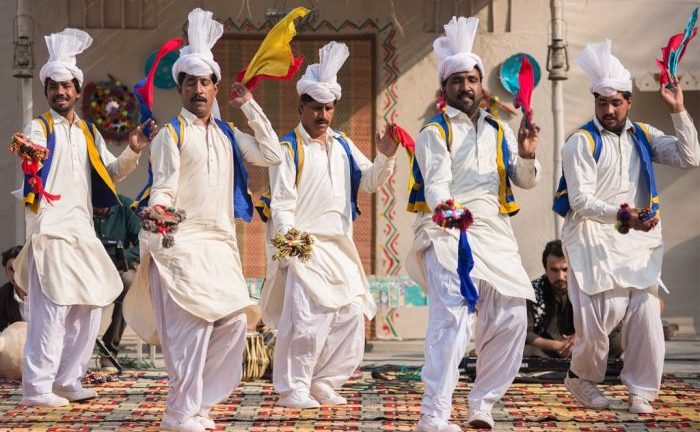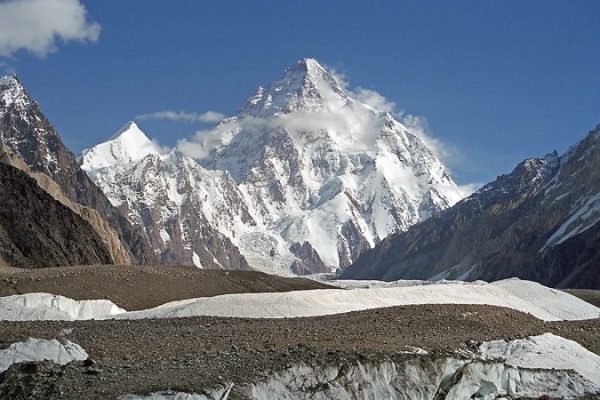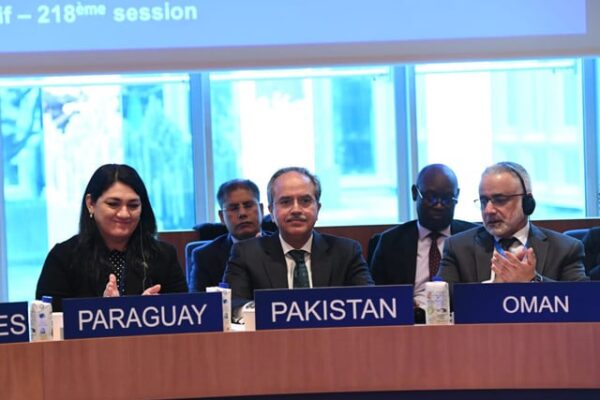Pakistan is a country rich in culture and traditions, and one of the most fascinating aspects of this culture is the diverse range of traditional festivals celebrated throughout the year. These festivals are a reflection of the country’s unique history and religious diversity, and they provide an opportunity for people to come together and celebrate their shared cultural heritage.
In this blog post, we will explore some of the most popular traditional festivals in Pakistan, including religious festivals like Eid-ul-Fitr and Eid-ul-Adha, as well as cultural festivals like Basant. We will take a closer look at the history and significance of each festival, as well as the traditions and customs associated with them.
In addition, we will explore the role of these festivals in promoting cultural diversity and national unity in Pakistan. Despite the country’s religious and ethnic diversity, these festivals bring people from different backgrounds together and promote a sense of belonging and togetherness.
Whether you are a traveler interested in experiencing the rich cultural heritage of Pakistan, or simply curious about the diverse festivals celebrated in the country, this blog post will provide you with a fascinating insight into the traditional festivals of Pakistan.
List of Traditional Festivals in Pakistan
- Eid-ul-Fitr
- Eid-ul-Adha
- Basant Festival
- Day of Ashurah
- Shab-e-Barat
- Shab-e-Miraj
- Independence Day
- Defence Day
- Pakistan Day
- Labour Day
- Quaid-e-Azam Day
- Christmas
- Diwali
- Holi
- Kashmir Day
- Urs of Baba Farid
- Urs of Lal Shahbaz Qalandar
- Urs of Data Ganj Bakhsh
- Urs of Bahauddin Zakariya
- Urs of Abdullah Shah Ghazi.
Eid-ul-Fitr:
Eid-ul-Fitr is a major Islamic festival celebrated by Muslims around the world to mark the end of the holy month of Ramadan. It is a time of joy, celebration, and forgiveness. In Pakistan, the festival is celebrated with great enthusiasm and fervor. Muslims wake up early in the morning, perform their prayers, and then visit friends and family to exchange greetings and gifts. Special Eid meals are prepared, and people dress up in new clothes.
Eid-ul-Adha:
Eid-ul-Adha, also known as the Festival of Sacrifice, is another important Islamic festival celebrated in Pakistan. It commemorates the willingness of Prophet Ibrahim (Abraham) to sacrifice his son as an act of obedience to Allah. Muslims celebrate by sacrificing an animal, usually a goat, sheep, or cow, and distributing the meat among family, friends, and the needy. The festival is also an occasion to reflect on the values of sacrifice, obedience, and charity.
Basant Festival:
Basant Festival, also known as the Festival of Kites, is a popular festival celebrated in Pakistan, particularly in the province of Punjab. The festival marks the arrival of spring and is celebrated by flying colorful kites in the sky. People wear bright clothes, dance to the beat of dhol (drum), and enjoy traditional foods like pakoras and channa chaat. However, the festival has also been associated with accidents and injuries caused by the use of dangerous kite strings, and as a result, the celebration of Basant has been banned in some areas.
Day of Ashurah:
The Day of Ashurah is an important religious observance in the Islamic calendar, particularly for the Shia Muslim community. It commemorates the martyrdom of Imam Hussain, the grandson of Prophet Muhammad, and his companions at the Battle of Karbala in 680 AD. The day is marked by processions, fasting, and mourning, and is a time for reflection on the values of sacrifice and devotion to God.
Shab-e-Barat:
Shab-e-Barat, also known as the Night of Forgiveness, is a religious festival observed by Muslims in Pakistan and other parts of the world. It is believed to be a night of forgiveness, when God forgives the sins of those who repent and seek forgiveness. Muslims spend the night in prayer and contemplation, seeking divine mercy and blessings.
Shab-e-Miraj:
Shab-e-Miraj, also known as the Night of Ascension, is a religious observance that commemorates the journey of the Prophet Muhammad from Mecca to Jerusalem, and his ascension to heaven. Muslims spend the night in prayer and contemplation, seeking spiritual blessings and enlightenment.
Independence Day:
Independence Day is celebrated on August 14th every year to mark the day when Pakistan gained independence from British colonial rule in 1947. The day is celebrated with parades, flag hoisting ceremonies, and cultural events, and is an opportunity for Pakistanis to express their patriotism and pride in their country.
Defence Day:
Defence Day is celebrated on September 6th every year to commemorate the heroic efforts of the Pakistan Armed Forces during the Indo-Pakistan War of 1965. The day is marked by parades, flag-hoisting ceremonies, and special events to pay tribute to the sacrifices made by the soldiers who defended Pakistan’s borders.
Pakistan Day:
Pakistan Day is celebrated on March 23rd every year to commemorate the adoption of the Lahore Resolution in 1940, which called for the creation of a separate homeland for Muslims in South Asia. The day is marked by parades, speeches, and cultural events, and is an opportunity for Pakistanis to reflect on the country’s history and reaffirm their commitment to its future.
Labour Day:
Labour Day is celebrated on May 1st every year in Pakistan to honor the contributions of workers to society. The day is marked by parades, rallies, and speeches, and is an opportunity to recognize the struggles and achievements of workers in Pakistan and around the world.
Quaid-e-Azam Day:
Quaid-e-Azam Day is celebrated on December 25th every year to mark the birthday of Muhammad Ali Jinnah, the founder of Pakistan. The day is marked by parades, speeches, and cultural events to pay tribute to Jinnah’s leadership and vision and to reaffirm Pakistan’s commitment to his principles of unity, faith, and discipline.
Christmas:
Christmas is celebrated by Christians in Pakistan on December 25th every year. Although Christians make up a small minority of the population in Pakistan, the day is marked by special church services, carol singing, and family gatherings, and is an opportunity for Christians to celebrate the birth of Jesus Christ and to share their faith with others.
Diwali:
Diwali, also known as the Festival of Lights, is celebrated by the Hindu community in Pakistan and around the world. The festival is usually celebrated in October or November and is marked by the lighting of lamps, the exchange of sweets and gifts, and the worship of deities such as Lakshmi, the goddess of wealth and prosperity.
Holi:
Holi is a spring festival celebrated by the Hindu community in Pakistan and around the world. The festival is marked by the throwing of colored powder and water, music, dance, and the sharing of sweets and snacks. Holi is a celebration of the triumph of good over evil, and is an opportunity for people to come together in joy and friendship.
Kashmir Day:
Kashmir Day is observed on February 5th every year in Pakistan to express solidarity with the people of Kashmir and to raise awareness about the ongoing conflict over the region between India and Pakistan. The day is marked by rallies, speeches, and cultural events, and is an opportunity for Pakistanis to express their support for the people of Kashmir and call for a peaceful resolution to the conflict.
Urs of Baba Farid:
The Urs of Baba Farid is an annual festival held in the city of Pakpattan in Punjab province to commemorate the death anniversary of the Sufi saint Baba Fariduddin Ganjshakar. The festival is attended by thousands of devotees from across Pakistan and around the world, who come to pay their respects to Baba Farid and to participate in the various rituals and ceremonies associated with the festival.
Urs of Lal Shahbaz Qalandar:
The Urs of Lal Shahbaz Qalandar is an annual festival held at the shrine of Lal Shahbaz Qalandar in the city of Sehwan Sharif in Sindh province. The festival is held to commemorate the death anniversary of the Sufi saint Lal Shahbaz Qalandar, who is revered by both Hindus and Muslims in Pakistan. The festival is marked by music, dance, and other forms of devotional expression, and is attended by thousands of devotees from across Pakistan and around the world.
Urs of Data Ganj Bakhsh:
The Urs of Data Ganj Bakhsh is an annual festival held at the shrine of Data Ganj Bakhsh in the city of Lahore in Punjab province. The festival is held to commemorate the death anniversary of the Sufi saint Data Ganj Bakhsh, who is considered one of the most important figures in the history of Sufism in South Asia. The festival is marked by music, poetry, and other forms of devotional expression, and is attended by thousands of devotees from across Pakistan and around the world.
Urs of Bahauddin Zakariya:
The Urs of Bahauddin Zakariya is an annual festival held in the city of Multan in Punjab province. It is held to commemorate the death anniversary of the Sufi saint Bahauddin Zakariya, who is considered one of the most important Sufi saints of the region. The festival is marked by a large number of devotees who come from all over Pakistan to pay their respects to the saint and to participate in the various rituals and ceremonies associated with the festival.
Urs of Abdullah Shah Ghazi:
The Urs of Abdullah Shah Ghazi is an annual festival held at the shrine of Abdullah Shah Ghazi in the city of Karachi in Sindh province. The festival is held to commemorate the death anniversary of the Sufi saint Abdullah Shah Ghazi, who is considered the patron saint of Karachi. The festival is marked by music, dance, and other forms of devotional expression, and is attended by thousands of devotees from across Pakistan and around the world.
FAQs on Famous Festivals in Pakistan
What are some traditional festivals in Pakistan?
Some traditional festivals in Pakistan include Eid al-Fitr, Eid al-Adha, Basant, Diwali, Holi, Shab-e-Barat, Shab-e-Qadr, and Urs.
What is Eid al-Fitr and how is it celebrated in Pakistan?
Eid al-Fitr marks the end of Ramadan, the month of fasting in the Islamic calendar. In Pakistan, Eid al-Fitr is celebrated by attending special prayers in mosques, giving gifts and money to children and the needy, and preparing festive meals.
What is Basant and how is it celebrated in Pakistan?
Basant is a spring festival celebrated in Pakistan, particularly in the city of Lahore. It is celebrated by flying kites and eating traditional foods such as halwa puri and chana masala.
What is Urs and how is it celebrated in Pakistan?
Urs is a Sufi festival that commemorates the death anniversary of a Sufi saint. It is celebrated by visiting the saint’s tomb, offering prayers and food to the poor, and participating in music and dance performances.
Are traditional festivals in Pakistan celebrated by all religions?
No, traditional festivals in Pakistan are mainly celebrated by specific religious communities. For example, Eid al-Fitr and Eid al-Adha are celebrated by Muslims, while Diwali and Holi are celebrated by Hindus. However, some festivals such as Basant and Urs are celebrated by people of different religions and communities.


![Most Famous Deserts in Pakistan [Exploring the Barren Lands]](https://mobizilla.pk/wp-content/uploads/2023/07/katpnadesert-colddesertskardu-A-600x400.jpg)


